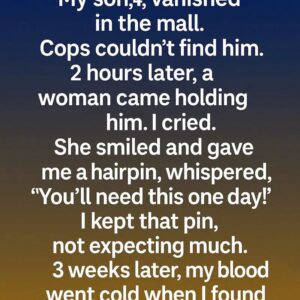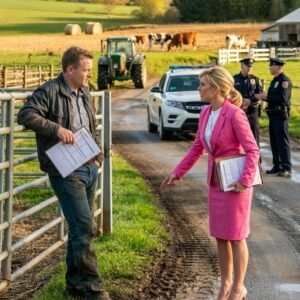I never set out to hurt anyone. I made a quiet decision decades ago not to have biological children, and it’s been one of those steady truths of my life—never regretted, never questioned.
I’m 59 and have been married to my second husband for almost 17 years. He came with a life, a history, and two adult children who are now 31 and 34. My relationship with them has always been polite and respectful. We are not close. I never insisted they call me “stepmom,” and they never did. That worked for all of us.

If you’d asked me who I considered family, I’d have pointed, without hesitation, at my nephew. He’s 26 and the son of my late brother.
He is the kind of person who turns up—without obligation, without fanfare. He checks in just to ask how I’m doing. He helped me gut the plaster and lift cabinets after the flood last year. He remembers anniversaries I’d forgotten and sends a tiny text just because. He has been more of a child to me than anyone else has been in years.

So—when I sat with my lawyer to redo my will, my choices reflected the life I’d actually lived. I left most of my estate to the person who showed up. My husband knew. He mentioned it in a conversation, thinking it was no more than a detail.
What happened next surprised me: his children reacted like actors in a courtroom drama.
“So we mean nothing to you?”
“We’ve been in your life forever—why would you cut us out?”

Here’s the plain truth: I didn’t set out to cut anyone out. I left each of them a fixed sum. I simply refused to divide everything equally as a means of avoiding people’s hurt feelings. I wanted my wishes to be honest, clear, and true to where my gratitude lies.
It stung when my husband, after some wrestling with his own feelings, decided to change his will so that everything he owns would pass to his children. That hurt. It also clarified things. I’m not petty about it; I’m deliberate.
I returned to my lawyer and added one final, unequivocal clause: anything my nephew inherits from me will be 100% shielded from claims or disputes by anyone else.

Some will call it dramatic. Some will call it protective. I call it what it is—gratitude with a boundary. I am honoring the people who honored me with their presence. Life taught me, in small acts and steady help, who mattered. My will reflects that lesson.
If this turns into a fight, those who choose to litigate will end up fighting for what I didn’t promise them in the first place. I’d rather spend my energy living and remembering than in courtrooms.
So I’ll ask plainly: if you were in my shoes — would you protect the people who showed up, even when the price is awkward conversations and a little family friction?
Note: This story is a work of fiction inspired by real events. Names, characters, and details have been altered. Any resemblance is coincidental. The author and publisher disclaim accuracy, liability, and responsibility for interpretations or reliance. All images are for illustration purposes only.




